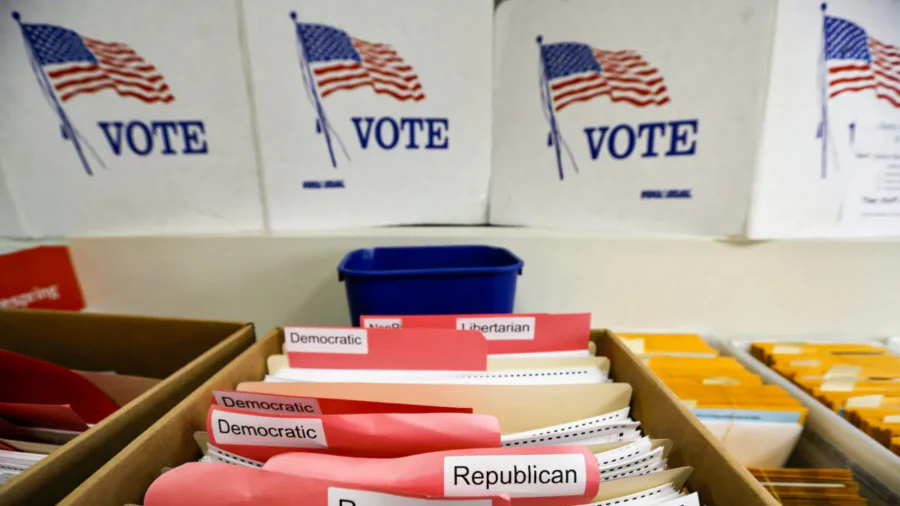Nebraska state Sen. Mike McDonnell, a Democrat-turned-Republican, said he won’t support switching the state’s electoral vote process to winner-take-all, denying a critical vote needed to implement the change.
“Elections should be an opportunity for all voters to be heard, no matter who they are, where they live, or what party they support,” McDonnell said on Monday in a statement, adding that the way Nebraska allocates its five electoral votes has upheld that principle for decades.
“I respect the desire of some of my colleagues to have this discussion, and I have taken time to listen carefully to Nebraskans and national leaders on both sides of the issue. After deep consideration, it is clear to me that right now, 43 days from Election Day, is not the moment to make this change.”
McDonnell said he clarified his stance to Nebraska Gov. Jim Pillen. He also suggested that the Republicans pursuing the change go for a referendum as a proposed constitutional amendment, so voters can decide the issue “once and for all” on the ballot.
“Nebraska voters, not politicians of either party, should have a final say on how we pick a president,” he said.
Nebraska and Maine are the only states that do not use a winner-take-all system for electoral votes. In Nebraska, two of the five electoral votes go to the candidate who wins the statewide popular vote, while the remaining three are awarded to the winners of each of the state’s three congressional districts.
While Nebraska generally leans Republican, its Second Congressional District—which includes Omaha—has occasionally swung Democratic in recent presidential elections, notably voting for then-presidential candidates Barack Obama in 2008 and Joe Biden in 2020.
That single electoral vote, often referred to as the “blue dot,” could be vital to Vice President and Democratic presidential nominee Kamala Harris’s path to winning the White House this November. In a scenario where Harris wins Michigan, Pennsylvania, and Wisconsin, she could break a 269–269 tie in the Electoral College with the one vote from Nebraska, avoiding the need to carry any of the Sun Belt swing states such as Arizona, Georgia, Nevada, or North Carolina.
Pillen, a Republican, had pledged to call a special session to switch to a winner-take-all system if he could secure 33 Senate votes needed to overcome a filibuster. The chamber currently consists of 33 Republicans, 15 Democrats, and one independent, Sen. Megan Hunt of Omaha, who changed her party registration last year from Democrat to nonpartisan.
However, with McDonnell sticking to the status quo, Republicans are left with no path to breaking the filibuster—unless a Democrat or Hunt defects. So far, none have publicly supported the change.
Over the past months, Republican presidential nominee and former President Donald Trump has urged Nebraska lawmakers to push through the measure. He hasn’t made a similar push to change Maine’s electoral vote formula that awarded him one vote in 2020.
“Most Nebraskans have wanted to go back to this system for a very long time, because it’s what 48 other states do. It’s what the founders intended, and it’s right for Nebraska,” Trump wrote in April on Truth Social.
In Maine, Democrats control both chambers of the state Legislature but fall short of forming a supermajority in the lower chamber. It’s unlikely Maine Republicans would help Democrats do away with the current electoral college system, which tends to benefit Republican presidential candidates.
From The Epoch Times

